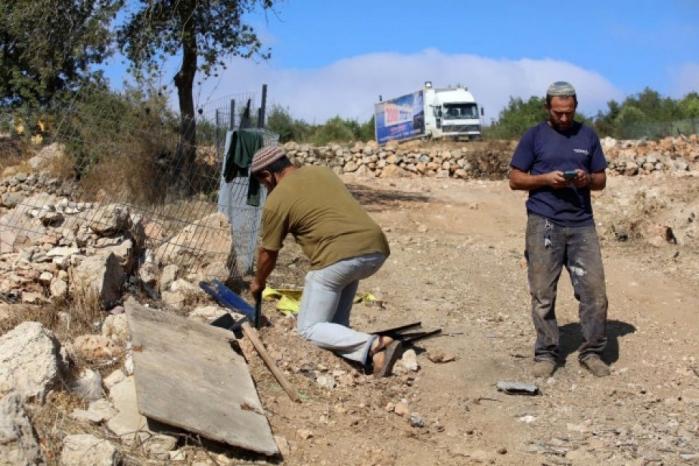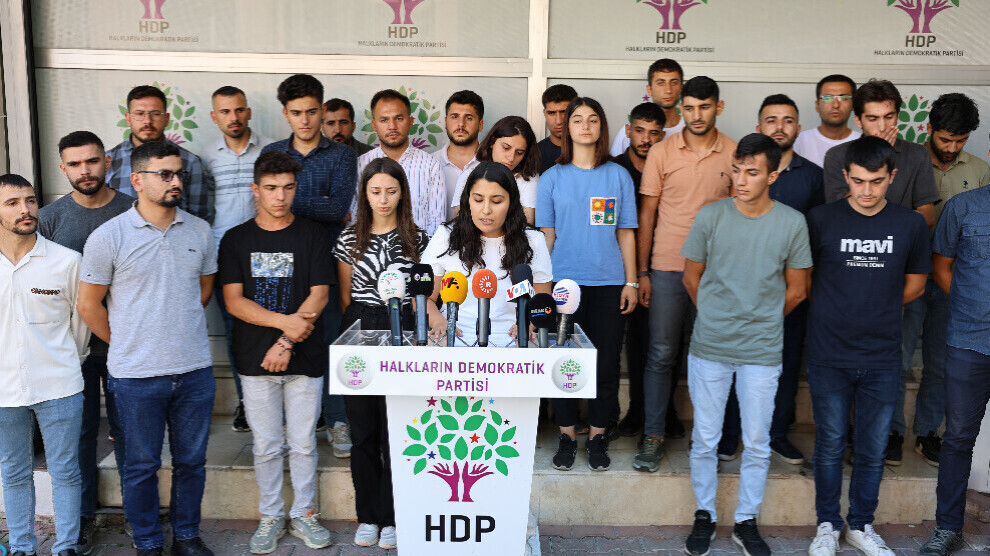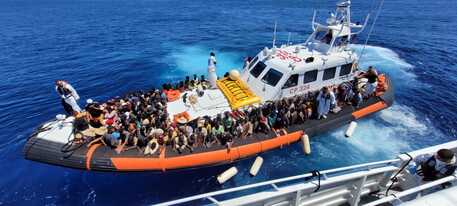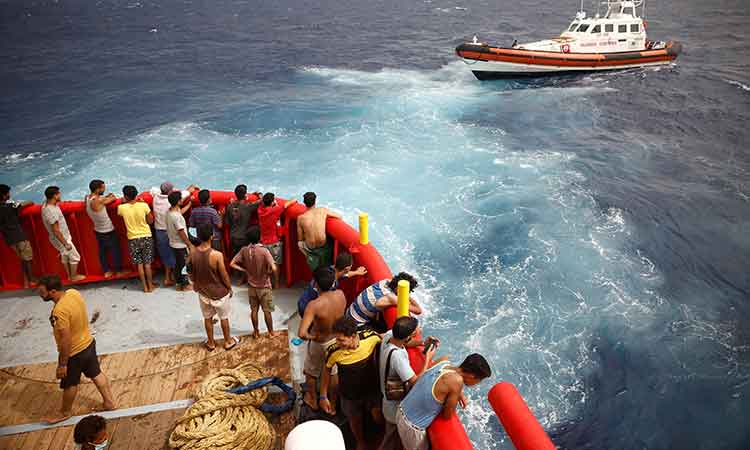Heat Waves Are Killing Older Women. Are They Also Violating Their Rights?
A group of Swiss women over 64 have filed a lawsuit against Switzerland with Europe’s top human rights court, saying the country has violated their rights by failing to curb emissions.

Members of KlimaSeniorinnen, or Senior Women for Climate Protection, with the French environmental activist and member of the European Parliament Marie Toussaint, third from right, in 2020 in Strasbourg, France.
NEW YORK TIMES
Aug. 6, 2023
The women live scattered around Switzerland, speak a mix of the country’s languages — German, French and Italian — and have worked in varying professions.
But the KlimaSeniorinnen Schweiz, a group of about 2,400 Swiss women aged 64 and over, say they have a common fear: soaring temperatures and heat waves that are threatening them with health ailments in their final decades.
“It is difficult to go outside — it is difficult to breathe,” said Fatima Heussler, 71, a member of the group who lives in Zurich, who retired after several decades of working with visually impaired older people. Last year’s summer heat last year was so tiring, she said she could not do even light household chores.
“I feel like I need to protect myself,” said Isabelle Joerg, 70, a former insurance risk manager and a member of the group from Basel, who says she sits in the dark with the blinds drawn at her home on particularly hot days. “I used to love summer — and now I can be threatened by it.”
A heat wave this summer that sent temperatures soaring in southern Europe has highlighted those concerns — along with a landmark lawsuit that the women filed in 2020 at Europe’s top human rights court accusing the Swiss government of violating their fundamental rights by not doing enough to protect them from the effects of climate change.

Firefighters in Greece battling a wildfire in July. A heat wave this summer that sent temperatures soaring in southern Europe has highlighted the concerns of climate activists.
Credit...Dan Kitwood/Getty Images
Switzerland experienced its hottest year on record last year, and though it has not been battered as much as southern Europe this year, a hot spell early last month sent temperatures as high as 98 degrees Fahrenheit in some Alpine areas. The national average last month was about 60 degrees, about 35 degrees higher than pre-1900 records.
The case, the first of its kind to be heard at that top court, the European Court for Human Rights, is among a growing number of lawsuits around the world using human rights grounds to argue that governments are shirking their obligations, as temperatures and sea levels rise, to ensure the safety and security of citizens.
Similar cases have come before national courts and human rights bodies, including a finding by a United Nations human rights committee that Australia had failed to protect Indigenous Australians in the Torres Strait, in the north of the country, from “the adverse impacts of climate change.”
While climate change is affecting all Swiss people, the KlimaSeniorinnen Schweiz — known in English as the Senior Women for Climate Protection Switzerland — say that older women like them are the most vulnerable.
The Far-Reaching Effects of Extreme HeatOn the Trail: In a summer of deadly heat for hikers, rangers at Grand Canyon National Park use a pioneering approach of aggressive messaging and outreach to prevent disaster on the trails.
Phoenix’s July in Hell: An entire month of temperatures reaching or exceeding 110 degrees has ground down people’s health and patience in the Arizona city of 1.6 million.
Lost Productivity: From meatpackers to home health aides, U.S. workers are struggling in sweltering temperatures. Productivity is taking a hit.
A ‘Dangerous Combination’: Trying to keep cool during a record-setting summer is a social divide for residents of low-income Latino neighborhoods along the Texas border, where running water can be in short supply.
One recent study found that last summer’s heat waves killed more than 61,000 people across Europe, most of them women over 80. In Switzerland, more than 60 percent of about 600 heat-related deaths last summer were attributed to global warming, according to a study from the University of Bern, with older women having the highest mortality rate.
Climate Forward There’s an ongoing crisis — and tons of news. Our newsletter keeps you up to date. Get it in your inbox.
“Our health is at risk,” said Elisabeth Stern, 75, a member of the KlimaSeniorinnen in Zurich and an avid hiker, who said she had kept herself fit and healthy her whole life. Last summer, sick of staying indoors with the windows shut, Ms. Stern, a former cultural anthropologist, visited the cooler mountains for a reprieve. But she collapsed in a cable car, overcome by the heat.
“There was a time when Switzerland was a cold place in general,” said Ms. Stern, who spent part of her childhood on a farm in Switzerland’s east and has watched a nearby glacier disappear in her lifetime. “It just has changed so rapidly.”
Experts say a ruling in the case brought by the KlimaSeniorinnen will most likely influence how the 46 countries that are members of the European court will handle similar claims.
“This will have a domino effect,” said Annalisa Savaresi, a senior lecturer for environmental law at the University of Stirling, in Scotland, who has studied climate change litigation. “It’s the first of its kind to be heard, but there are many others in the pipeline.”
The litigants in the Swiss case include four women who said they had heart and respiratory diseases that put them at risk of death on hot days.
The crux of the complaint is a charge that the Swiss government’s failure to reduce greenhouse gas emissions enough to prevent global warming of 2 degrees Celsius is at odds with its obligations under the European Human Rights Convention. Those include rights to life and autonomy, given that older women have been proved to be particularly vulnerable to heat-related illnesses.

The dry bed of Brenets Lake on the border between Switzerland and France in 2022.
Credit...Fabrice Coffrini/Agence France-Presse — Getty Images
“What this would give citizens is an additional tool to name and shame these states and make their grievances visible and, eventually, enforceable,” Dr. Savaresi said. But, she added, how such rulings could be imposed remain in “uncharted territory.”
The case was initially brought to domestic courts in 2016, with the Swiss Supreme Court ruling that there was not enough evidence to prove that women’s rights had been violated. The litigants say that those courts did not properly analyze the case, so they took it higher, to the European Court of Human Rights.
The Swiss government has argued that international law does not give individuals rights to be protected from climate change, and that addressing its effects should be a political, rather than legal, process. It declined to comment further on the proceedings for this article, saying that it was waiting for the judgment.
Other governments, like Ireland’s, have also given arguments in the case on behalf of the Swiss government, while several rights groups have supported the litigants.
Marc Willers, one of the lawyers involved, said the litigants felt a moral obligation to pursue the case. If Switzerland, one of the richest and most technologically advanced countries in the world, did not step up to tackle climate change, he said, “what hope is there that other countries will fill the gap?”
Experts say that Europe will experience more frequent and more intense heat waves in the future, and that Switzerland is particularly vulnerable and is warming at more than double the rate of the global average. Its glaciers melted last year at a faster rate than ever recorded, and dwindling winter snow in Alpine villages has been devastating for popular ski resorts.
That urgency has sent climate change to the top of the political agenda, with climate activists saying that the country is not doing enough to meet its obligations under the Paris Agreement, the 2015 treaty aimed at reducing global emissions.
In June, Swiss voters passed a referendum that would require Switzerland to reach a net zero emissions target by 2050.
Many women in the KlimaSeniorinnen, which is affiliated with Greenpeace, are longtime activists who have also taken up the mantle of reducing emissions in their daily lives.

Cooling off on Lake Geneva last year in Lausanne, Switzerland. Climate issues have shot to the top of the country’s political agenda.
Credit...Laurent Gillieron/EPA, via Shutterstock
Ms. Heussler, of Zurich, says she rarely travels, does not own a car and grows her own vegetables. But she mostly gave up gardening during last year’s heat waves, except for during the earliest hours of the day.
Ms. Joerg, of Basel, said she was excited to retire several years ago. “I thought, ‘Finally, no job, no work, no agenda,’” she said, “‘I can do whatever I want.’” Instead, during heat waves in recent years, she has stayed indoors, unable to go out to see friends or otherwise socialize. “That makes me angry,” she said.
A ruling in the KlimaSeniorinnen’s case is not expected until 2024. The court is also considering several other climate change-related cases, including one filed by a group of young Portuguese who have accused 33 countries of not upholding their human rights obligations by failing to curb emissions, and by a French citizen who has brought a similar case against the French government.
But as they wait and try to go about their lives, the members of KlimaSeniorinnen say they are hopeful that the case can demonstrate that older people can be powerful climate advocates, even if they may not be around for the future.
“I know that statistically speaking in 10 years, I’m gone,” said Ms. Stern, the avid hiker. “So whatever I fight for now, I am not going to be the benefactor.”
She added, “It’ll be for the next generation.”
















